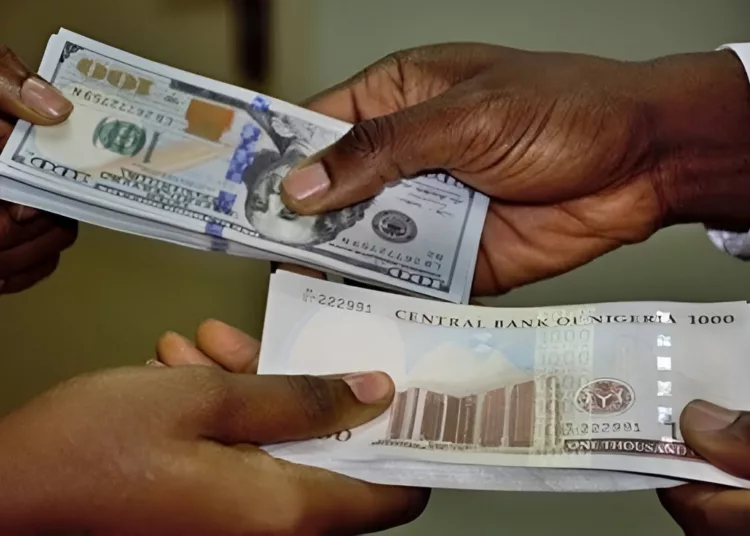In the tumultuous landscape of economic discourse, few topics are as contentious as the value of a nation’s currency. For Nigerians, the recent chatter surrounding the Naira’s perceived gain in value due to an appreciating exchange rate against major trading currencies must be addressed with clarity and nuance. The crux of the matter lies not merely in numerical fluctuations but in the fundamental essence of what constitutes real value—namely, its ability to withstand the erosive forces of inflation and serve as a reliable store of wealth.
Let’s start by dispelling a common misconception: the notion that an appreciating exchange rate inherently equates to a stronger currency and an improved standard of living. Such a simplistic view overlooks the intricate dance between various economic indicators and the lived experiences of everyday Nigerians.
As of April 2024, Nigeria witnessed a headline inflation rate of 33.69 per cent, marking a concerning uptick from the previous month’s 33.20 per cent. This uptrend in inflation, as mirrored by the Consumer Price Index (CPI) climbing to 718 points from 701.90 points in March of the same year, underscores a harsh reality. The purchasing power of the Naira is steadily eroding, with the cost of living soaring to unprecedented levels.
Imagine this scenario: what you could afford with a certain amount of Naira just a year ago now demands double or even triple the sum. This stark contrast illustrates not a strengthening currency but rather the relentless onslaught of inflationary pressures that gnaw away at the value of every Naira in circulation.
The impact of such economic dynamics permeates every facet of Nigerian life. Consumer spending, for instance, becomes a delicate balancing act as individuals and households grapple with the rising cost of essentials. What were once considered basic necessities now strain budgets, leading to difficult choices and compromised standards of living.
Savings, traditionally seen as a pillar of financial stability, face a double-edged sword. While prudent saving habits are encouraged for long-term security, the diminishing value of saved funds in the face of soaring inflation poses a formidable challenge. What’s the point of saving diligently if the purchasing power of those savings steadily dwindles?
Investments, too, feel the tremors of economic volatility. Investors navigate a landscape fraught with uncertainty, where market fluctuations and inflationary pressures cast a shadow over potential returns. The allure of investing to grow wealth is tempered by the need to mitigate risks and hedge against the erosive effects of inflation.
It’s crucial to understand that the value of a currency extends beyond its numerical representation in foreign exchange markets. True value lies in its ability to preserve purchasing power, foster economic stability, and inspire confidence in both domestic and international stakeholders. The current narrative of a strengthening Naira based solely on exchange rate movements paints an incomplete picture—one that neglects the underlying vulnerabilities of Nigeria’s economic ecosystem.
Addressing these challenges demands a multifaceted approach that goes beyond short-term fixes or superficial assessments. Structural reforms aimed at curbing inflationary pressures, enhancing productivity across sectors, and fostering a conducive environment for investment and growth are imperative.
The role of fiscal and monetary policies cannot be overstated in this context. Prudent fiscal management, coupled with targeted interventions to stimulate productive sectors of the economy, can help alleviate inflationary strains and bolster the Naira’s true value. Monetary policies must strike a delicate balance between curbing inflationary pressures and supporting economic growth, avoiding knee-jerk reactions that may exacerbate existing challenges.
Furthermore, enhancing financial literacy and promoting responsible financial practices among citizens are critical components of a sustainable economic framework. Empowering individuals with the knowledge and tools to navigate economic complexities fosters resilience and promotes sound decision-making at all levels of society.
In the realm of international trade and diplomacy, Nigeria must engage proactively to strengthen economic ties, attract foreign investment, and diversify revenue streams. A robust and diversified economy is better equipped to weather external shocks and navigate global economic dynamics with resilience.
Ultimately, the discourse on the Naira’s value must transcend simplistic metrics and delve into the underlying economic realities that shape its trajectory. It’s time to move beyond the illusion of a strong currency based solely on exchange rates and embrace a holistic approach that prioritizes economic stability, resilience, and inclusive growth.
As Nigerians, we must collectively demand accountability, transparency, and effective governance in economic policymaking. Our future prosperity hinges not on fleeting fluctuations but on enduring foundations of sound economic principles and responsible stewardship.
In closing, let us remember that the true measure of a currency’s value lies not in its nominal worth but in its ability to uphold the aspirations and well-being of the people it serves. The journey toward a stronger Naira and a more resilient economy begins with a clear-eyed understanding of our challenges and a steadfast commitment to meaningful change.














